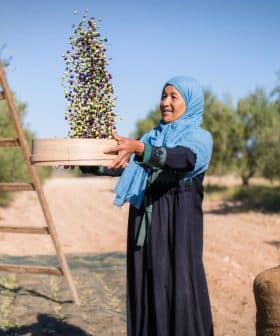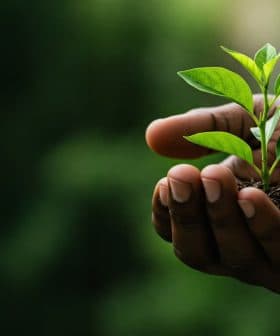Nations Sign COP15 to Protect the Future of Biodiversity

The Kunming-Montreal Global Biodiversity Framework has been signed by nations aiming to protect 30 percent of the world’s land and oceans by 2030, addressing biodiversity loss and indigenous rights. The agreement includes financial commitments to boost biodiversity, with the goal of reducing extinction rates and sharing the benefits of genetic resources.
An international agreement has been reached with the goal of protecting 30 percent of the world’s land, coastal areas and oceans and 30 percent of degraded ecosystems by 2030. The pact addresses biodiversity loss, restores ecosystems, and protects indigenous rights.
The new Kunming-Montreal Global Biodiversity Framework (GBF) has been signed by the nations participating in the United Nations Biodiversity Conference (COP15) held in Montreal, Canada.
From December 7 – 19, hundreds of indigenous associations, environmentalists, researchers and business leaders from around the world joined environmental ministers from almost 200 countries to address the biodiversity crisis crippling the planet.
The signatories of the GBF also agreed to provide new funds to the least developed countries and developing states with the goal of boosting biodiversity.
See Also:Research on Olive Biodiversity Is Key to Tackling Climate Change“The stakes could not be higher: the planet is experiencing a dangerous decline in nature due to human activity. It is experiencing its largest loss of life since the dinosaurs. One million plant and animal species are now threatened with extinction, many within decades,” the United Nations Environment Programme (UNEP) wrote in a note announcing the new agreement.
The framework should achieve a few primary global goals, which include the tenfold reduction of the extinction rate for all species by 2050 and ending the human-induced extinction of threatened species.
Other significant commitments of the agreement include developing a sustainable approach and using biodiversity to acknowledge the value of nature. The agreement also aims to fairly share the benefits of genetic resources and digital sequence information.
The United States and the Vatican did not participate in the Convention or sign the final agreement.
Still, the U.S. administration’s biodiversity envoy, Monica Medina, met with COP15 delegates and discussed the U.S.‘s current biodiversity strategies, which include the protection of at least 30 percent of land and oceans and consistent participation in the United Nations Global Environment Facility.
To become effective, the framework will have to be ratified and adopted by the signing countries. “Success will be measured by our rapid and consistent progress in implementing what we have agreed to. The entire U.N. system is geared to support its implementation so we can truly make peace with nature,” said Inger Andersen, UNEP executive director.
The final agreement also listed 23 sectorial targets. They include restoring 30 percent of terrestrial and marine ecosystems, reducing the loss of highly relevant biodiversity-rich areas to near zero and halving global food waste.
The framework included a series of financial and credit commitments destined to impact biodiversity. It asked participating countries to reduce subsidies that harm biodiversity, such as those supporting the fossil fuel industry, by at least $500 billion per year. Countries should accompany this decrease with incentives for companies developing biodiversity and conservation-friendly solutions.
The agreement also asks for $200 billion annually to fund biodiversity-related projects. Such funds will be added to the at least $30 billion a year that developed countries will transfer to developing nations. These funds will help sustain the framework’s goals.
Finally, the GBF targets require transnational companies and financial institutions to monitor, assess and transparently disclose the risks and impacts on biodiversity their operations, portfolios, supply and value chains create.
As reported by The Guardian, the minister for Environment and Climate Change Canada, Steven Guilbeault, called the agreement “a major win for our planet and all of humanity, charting a new course away from the relentless destruction of habitats and species.”
“Governments have chosen the right side of history in Montreal,” World Wildlife Fund International director general, Marco Lambertini, told Reuters. But he warned that the GBF “could be undermined by slow implementation and failure to mobilize the promised resources. It also lacks a mandatory ratcheting mechanism that will hold governments accountable to increase action if targets are not met.”
“Make no mistake: this is a historic result for nature. The Kunming-Montreal Global Biodiversity Framework provides a long-needed international blueprint to guide our collective turnaround of nature’s fortunes within this crucial decade,” Andrew Deutz, Nature Conservancy’s director of Global Policy, Institutions and Conservation Finance, said in a note.









